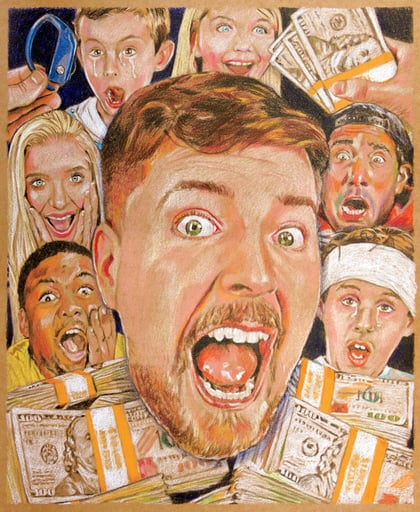Why do we think online personalities are our friends? - Issue #338

I don't like puns, but I do like the name of this little email. This week, I have a lingering thought and a fun read. I hope you enjoy both.
During the information diet part of my month-long sabbatical from work, I stopped listening to podcasts. I didn't pick up my regular habit upon my return and thus my regular podcast consumption has almost stopped. Aside from dipping back into the episode queue during a few long drives, I've been doing without the voices in my headphones.
At the same time, I've noticed a bit more loneliness. I've felt the need to text people, or to call them, or to pop outside to see the neighbors. (If you've been the recipient of my pestering, sorry?) Upon reflection, I think these two trends are connected: less podcast listening, more needing to talk with people. I think my old podcast habit filled a social need.
While in graduate school, our professor Steven Tomlinson also mentored me in communications. One of the things he critiqued about my style was its chattiness. He echoed my debate coach's advice about increasing informational density with a simple 'be concise.' Why? Human conversation mostly isn't about conveying a thought, it's about making people feel ok to be with us. Our conversational noise is a lot like the noise chimps make during their social grooming sessions: whatever we're saying, the meaning is close to 'I'm ok, you're ok.' But that doesn't mean we're saying a whole lot, so the professional communicator looks for ways to say a bit more and talk a bit less. Concision.
If there was ever a model for talking lots and saying little, it's a podcast. Podcasters' conversational interviews are nothing if not exercises in length. Not infrequently have I recommended an episode with "if you think it gets good in the second hour, wait until the third!" Listening to these conversations makes me subliminally feel that the hosts are my friends. No wonder that I've bought so much frozen meat, so many audiobooks, and all those bamboo underpants–my friends asked me to!
When I cut my podcast listening by 95%, I needed to replace not just the information or a pastime, but low-grade social interaction. For the record, I'm not friends with the podcast hosts, nor am I the type to reply aloud to the voices in my headphones. Listening to podcasts made me think I was part of a human conversion and thus tend to need real conversation a bit less.
The inverse of this electronic substitute was true early on in the pandemic: I noticed my consulting calls were almost half conversation, instead of consultative content. This was because people missed their friends (even office friends). If Zoom is a cheap substitute for meeting a friend at your local coffeeshop, podcasts are even worse. Maybe the podcast boom is ending because we've realized that letting podcast hosts into our brains for hours a week is a thin substitute for spending time with our real friends.
Or, Occam's razor: it's just summer and I'm spending more time outside. Either way, there's my lingering thought for you. Enjoy Father's Day and the long weekend!
Reading
How MrBeast Became the Willy Wonka of YouTubeJimmy Donaldson, a.k.a. MrBeast, has become a viral sensation for his absurd acts of altruism. Why do so many people think he's evil? |
|
